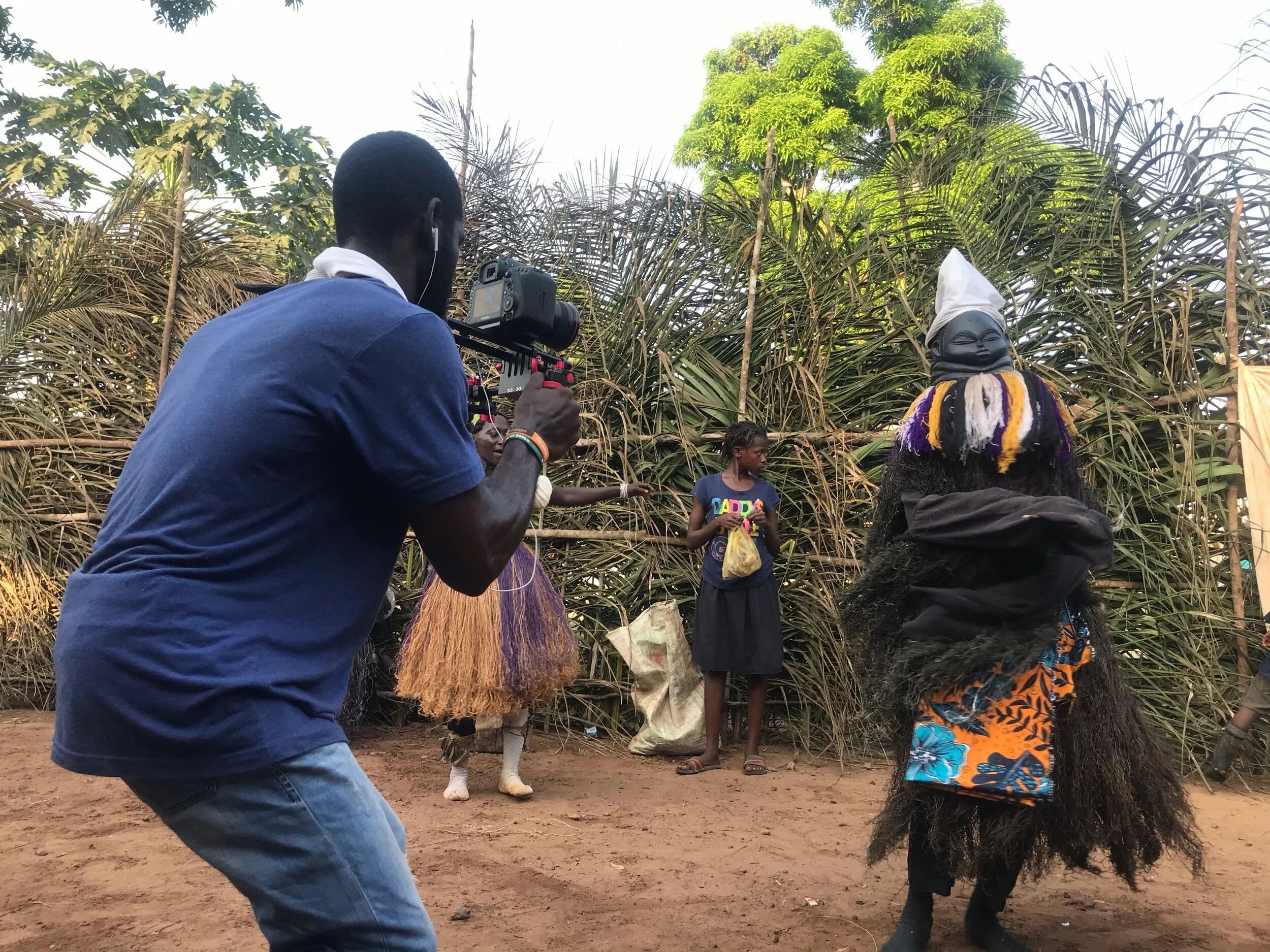Sierra Leone's girls experience more violence at home than anywhere else - Spare the rod and protect them instead #16DaysOfActivism
If we want to reduce violence against women, let us start with how we discipline girls. All children in Sierra Leone endure corporal punishment-using physical pain as discipline at home and in school, but long after boys stop getting beaten parents still beat their girls. We beat our girls, so we don’t spoil them, but beating is just bad training, it conditions us for more violence.
In Sierra Leone, beating of children starts when they are young, but girls have it worse. During childhood girls are expected to show maturity beyond their years. Boys can be playful and childish, but a girl ”noh foh lek too mos play.” Girls are expected to take on added responsibilities--a third of girls marry before the age of consent. Even those who don’t meet this fate have to fetch water, cook, clean and take on added domestic work--the more they are asked to do the more we expectations of our girls.
To be a good girl, you have to be domesticated, sexually pure, and obedient. Should you ever fail in being a ”good girl,” there is a beating that awaits you.
One specific incident from my childhood that let me know that the price that I would pay for making a mistake was higher as a girl was when my 10-year-old cousin Tina was raped by another cousin Dauda (not their real names) who was 16.
Even though Tina was younger, the actual weight of the punishment was more severe for her. After the rape, her mother beat her so badly, and so often, she was moved out of the house and separated from the family. My grandmother was afraid her mother would kill her.
Dauda, who raped her, continued to live with us. He was beaten too but Tina she was not just beaten on that day. She was ostracized and had to miss months of school because her mother kept beating her. For years she was treated as less by her mother; because she had lost her virtue. Eventually Tina ran away from home or according to her mother,”e jomp na trit.” Tina wasn't safe at home, and that is quite common for girls and women in Sierra Leone. One in every three women in Sierra Leone has been sexually abused, and half have experienced intimate partner-domestic violence.
Earlier in the year, I did an interview with Jane, a 25-year-old woman who was raped when she was in teens. The reason she had ended up at the house of her rapist was that she knew her father would beat her if she walked under the rain. So she went with a friend to wait for someone’s veranda. While waiting, she was raped by the man. It was the fear of being beaten that put her in harm’s way.
And on that day after being raped, upon arriving at home, the first thing her father tells her is to take off her clothes so he can beat her for getting home late. It is while beating her that he notices blood on her underwear. Instead of asking her how and why she is hurt he continues to beat her because he says the blood is proof she has started having sex. It is when Jane runs out of the house screaming for help in her panties at the age of 14 that strangers come to her aid, and she can explain to her father that she had been raped.
When such a girl grows up and becomes a woman, do you think she will speak up or fight an abusive partner? Will she understand that she doesn't have to endure domestic violence? She doesn't.
By age 18, Jane was a victim of intimate partner abuse. While pregnant, her boyfriend beat her and once tied an extension cable around her neck to choke her. Jane recalls that when she cried in his house to alert his family members outside his bedroom she could hear them put up the volume on a TV to drown out her scream. Help did not come.
That wasn’t the first time he beat her. The most unsafe place for a Sierra Leonean girl or woman is at home. Our fathers, uncles, brothers, and cousins, are our biggest violators; they beat us, and they sexually abuse us. Gender-based violence starts at home, in our families.
Violence against women in Sierra Leone runs deep and cross-cutting, but the bedrock of it all is that girls and women are not considered equal to boys or men.
Uman na uman but man na man-a woman is a woman, but a man is a man, the latter trumps the former.
There are several things we can do that will make our communities safer for all children, both boys, and girls, but especially girls who are disproportionately affected by the afflictions that come with being born female in Sierra Leone.
Let's make it illegal for parents and teachers to beat all children. The Convention on the Rights of Children of which Sierra Leone is a signatory condemns all forms of corporal punishment - countries’ laws must forbid corporal punishment clearly, unambiguously, in all settings, without exception. Ghana has already banned beating in schools, although over 93% of children still face corporal punishment at home.
When we beat our children, we normalize violence as a form of conflict resolution. You are also grooming them, the girls to be victims, and the boys to be perpetrators of violence.
Develop social messaging campaigns to challenge religious and traditional beliefs that suggest beating saves our children because it doesn’t. Educate children about their rights and teach parents proven alternative methods to discipline their children that don’t include physical pain.
We need to protect our girls and all children from physical, sexual, and structural violence.





